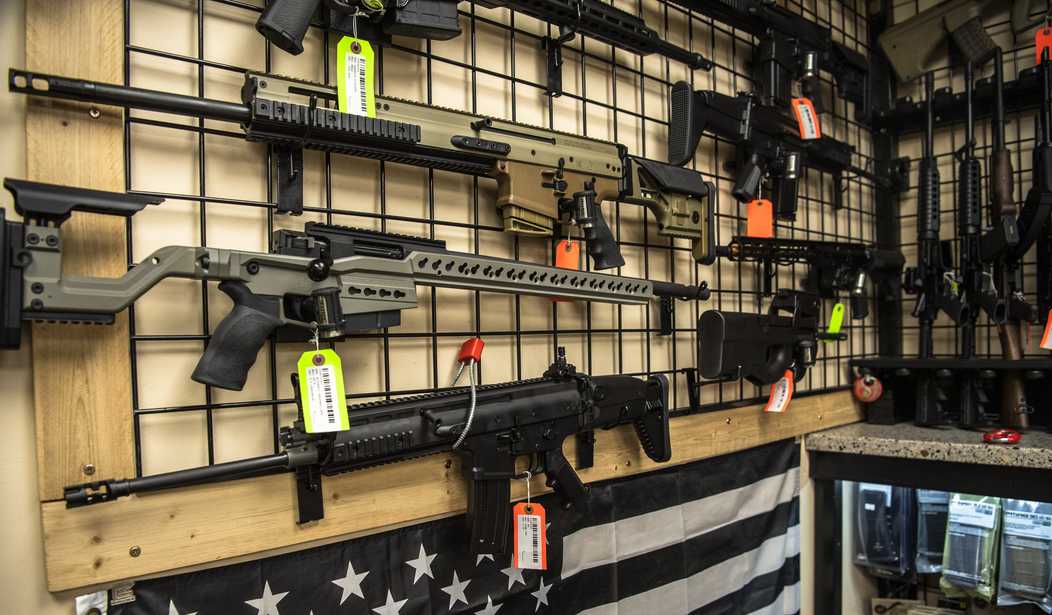Cook County, Illinois is asking the Supreme Court to reject a legal challenge to its ban on so-called assault weapons, and the argument made by State's Attorney Eileen O'Neill Burke is so broad that it would put almost every commonly owned long gun, even bolt action hunting rifles, beyond the scope of the Second Amendment's protections.
In her reply brief to the cert petition filed in Viramontes v. Cook County, Burke argues that the national tradition of gun ownership in the United States demonstrates that "legislatures have long strictly regulated weapons that, like assault weapons, are either (1) fundamentally incompatible with ancient common law principles of moderate, proportionate self-defense; or (2) not commonly borne in public for a lawful purpose."
Oddly, though, the remainder of Burke's response to the cert petition is utterly silent on that supposed legislative history. Instead, the Cook County State's Attorney argues that "there is no meaningful difference between the performance capacity of the M-16 and the AR-15," which, as Firearms Policy Coalition's Rob Romano points out, directly contradicts Chicago's ongoing lawsuit against Glock over its alleged easy convertability to full-auto machine guns.
Strange how anti-gunners are so mad about Glock switches if they don't think there's a meaningful difference between semi-auto and full-auto guns https://t.co/bjT2RoCArc
— Rob Romano (@2Aupdates) October 29, 2025
It's a bizarre assertion, but unfortunately Burke is essentially parroting the opinion of the Seventh Circuit Court of Appeals, which has upheld the gun ban in question. Burke notes that as well in her response, along with reminding the Supreme Court that, so far anyway, no appellate court has agreed that bans on "assault weapons" violate the Second Amendment.
Viramontes’ petition for certiorari reflects his careless approach to constitutional litigation and accordingly should be denied for three reasons. First, he identifies no circuit split on the ultimate question whether the Second Amendment permits bans on assault weapons, nor even an outcome-determinative disagreement amongst the circuits any of issue relating to the constitutionality of assault weapon bans. Second, this case is an exceedingly poor vehicle, for the simple reason that Viramontes forfeited his constitutional arguments by disregarding basic principles of party presentation that Bruen itself emphasized – at every phase of the proceedings below. Third, and finally, the judgment below is correct because the factual and historical record the County compiled in this case make clear that assault weapons are dangerous and unusual, and may thus be banned.
Every firearm is "dangerous", so Cook County had little trouble making that case. But "unusual"? AR-15s and other semi-automatic rifles are "both widely legal and bought by many ordinary consumers", to quote Justice Elena Kagan's opinion in Smith and Wesson v. Mexico; a statement unanimously agreed upon by the Supreme Court.
Arguing that the more than 20-million lawfully owned semi-automatic rifles in the United States are unusual is as silly as arguing that only those firearms that are "commonly borne in public for a lawful purpose" and are compatible with "moderate, proportionate self-defense" are protected by the Second Amendment. The Supreme Court has said that arms that are in common use for lawful purposes, including but not limited to self-defense, are protected by the Second Amendment, and the number of AR-15 owners who'll never commit a crime with their guns far outnumbers the small portion of those who will.
Burke argues that AR-15s and other so-called assault weapons are the firearms of choice for mass killers. According to the FBI, handguns are used in more active shooting incidents than rifles, but let's assume for the sake of argument that Burke is correct. So what? Handguns are the weapon of choice for most gang members, armed robbers, and home invaders, but they're also in common use for lawful purposes, and the Supreme Court has already said that a handgun ban is off the table when it comes to our Second Amendment rights. Why should we treat long guns any differently, especially when the historical record is devoid of any widespread attempts to limit firing capacity, muzzle velocity, or the rate of fire until the early 20th century. Even then, laws distinguished fully-automatic firearms from semiautomatic guns; a distinction utterly ignored by Burke's assertion that AR-15s and M-16s are essentially one and the same.
I have my doubts that the Supreme Court will take up Viramontes, but if they reject the cert petition I don't think it will be because Burke made a persuasive argument. I think the justices want to address "assault weapon" and "large capacity" magazine bans at the same time, and though they could do by granting cert to both Viramontes and the Duncan case challenging California's magazine ban, I have a sneaking suspicion that justices will wait until the AWB/mag ban cases that are currently awaiting decisions in the Third and Seventh Circuits are appealed to the High Court.








